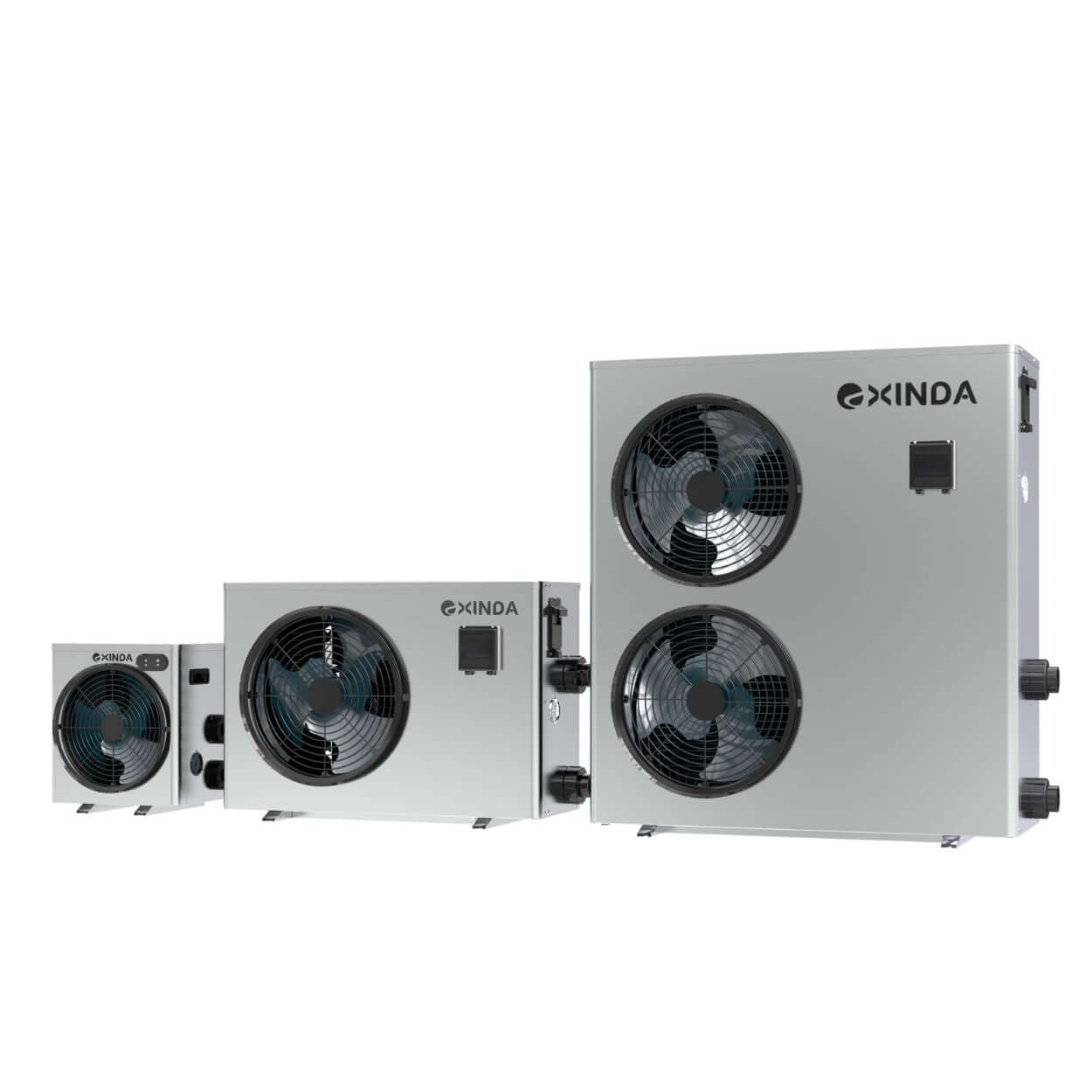
Inverter technology has changed pool heating. It offers high energy efficiency and precise temperature control. Inverter motors can vary their speed to match the load. Unlike fixed-speed motors, this ensures optimal performance and saves energy.
How Inverter Pool Heat Pumps Work
- Outdoor Unit: The outdoor unit houses the compressor, fan, and heat exchanger. It draws heat from the outside air, even in relatively cold temperatures.
- Heat Exchange: The system transfers the extracted heat to a refrigerant in the heat exchanger.
- Compressor: The refrigerant is compressed, raising its temperature.
- Indoor Unit: The heated refrigerant flows to the indoor unit. It heats the pool water via a heat exchanger.
- Variable Speed Control: As pool temperatures fluctuate, the inverter-driven compressor responds. It ramps up or slows down, precisely matching cooling needs. This smart adaptation optimizes performance and minimizes energy use. It keeps your pool comfortable and costs low.
Advantages of Inverter Pool Heat Pumps
- Superior Energy Efficiency: Inverter technology enables precise temperature control. It cuts energy use and saves money.
- Quiet Operation: The variable speed compressor reduces noise. This makes inverter heat pumps better for your backyard.
- Faster Heat Up: Inverter heat pumps heat your pool faster than traditional models. You’ll enjoy swimming sooner.
- Temperature Precision: The compressor’s speed can be adjusted. This keeps the pool at your desired temperature.
- Durability: Inverter technology can improve lifespan. It reduces stress on the system.
Factors to Consider When Choosing an Inverter Pool Heat Pump
- Pool Size: The size of your pool will determine the required heating capacity. Larger pools will need more powerful heat pumps.
- Climate: Your local climate is key. It affects the heat pump’s efficiency. In colder regions, a more powerful heat pump may be necessary.
- Desired Water Temperature: If you prefer a higher pool temperature, a more powerful heat pump will be required.
- Budget: Inverter heat pumps may have a higher upfront cost, but the long-term energy savings can offset this.
- Additional Features: Some inverter heat pumps have advanced features. They include Wi-Fi, timers, and smart home integration.
Maintenance and Care
- Regular Cleaning: Keep the outdoor unit clean to ensure optimal performance. Remove leaves, debris, and any obstructions that may interfere with airflow.
- Filter Maintenance: A clean pool filter is essential for efficient heating. Follow the manufacturer’s recommendations for filter cleaning and replacement.
- Winterization: If you live where winters are harsh, winterize your pool heat pump. It will protect it from freezing temperatures.
- Professional Maintenance: Schedule regular maintenance for your inverter pool heat pump. It will keep it running at peak efficiency.
Case Study: The Smith Family’s Experience
The Smith family recently installed an inverter heat pump for swimming pool in the backyard. The quick heating time impressed them. It maintained a steady water temperature. The quiet operation of the heat pump also contributed to their satisfaction.
Comparison to Traditional Pool Heaters
Inverter swimming pool heat pumps offer several advantages over traditional pool heaters:
- Energy Efficiency: Inverter heat pumps use less energy. They lower utility bills.
- Temperature Control: Inverter heat pumps provide more precise temperature control, ensuring optimal comfort.
- Quiet Operation: Inverter heat pumps are generally quieter than traditional pool heaters.
- Durability: Inverter technology often leads to longer component lifespans.
FAQs
- Are inverter pool heat pumps worth the investment?
- Yes, inverter pool heat pumps are a good investment. They are energy-efficient, quiet, and have precise temperature control.
- How long do inverter pool heat pumps last?
- With proper maintenance, inverter pool heat pumps can last for 10 to 15 years or more.
- Can people use inverter pool heat pumps in colder climates?
- Yes, inverter pool heat pumps can work in colder climates. But, a more powerful unit may be needed to maintain peak performance.
- Are inverter pool heat pumps noisy?
- Inverter pool heat pumps are usually much quieter than traditional pool heaters. Their variable-speed technology makes the difference.
- How much can I save on energy costs with an inverter pool heat pump?
- Energy savings can vary. They depend on your local climate, pool size, and usage. Yet, many homeowners report significant energy cost reductions.
Conclusion
Inverter pool heat pumps are better than traditional models. They are more energy-efficient, comfortable, and precise. You can enjoy the benefits of this heating solution. To do so, understand the technology, consider your needs, and maintain it. Then, you’ll make an informed decision.
